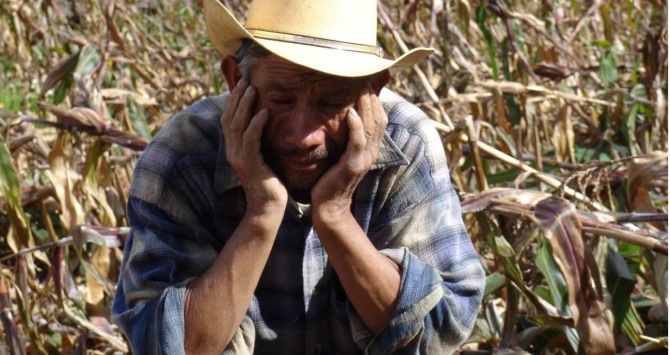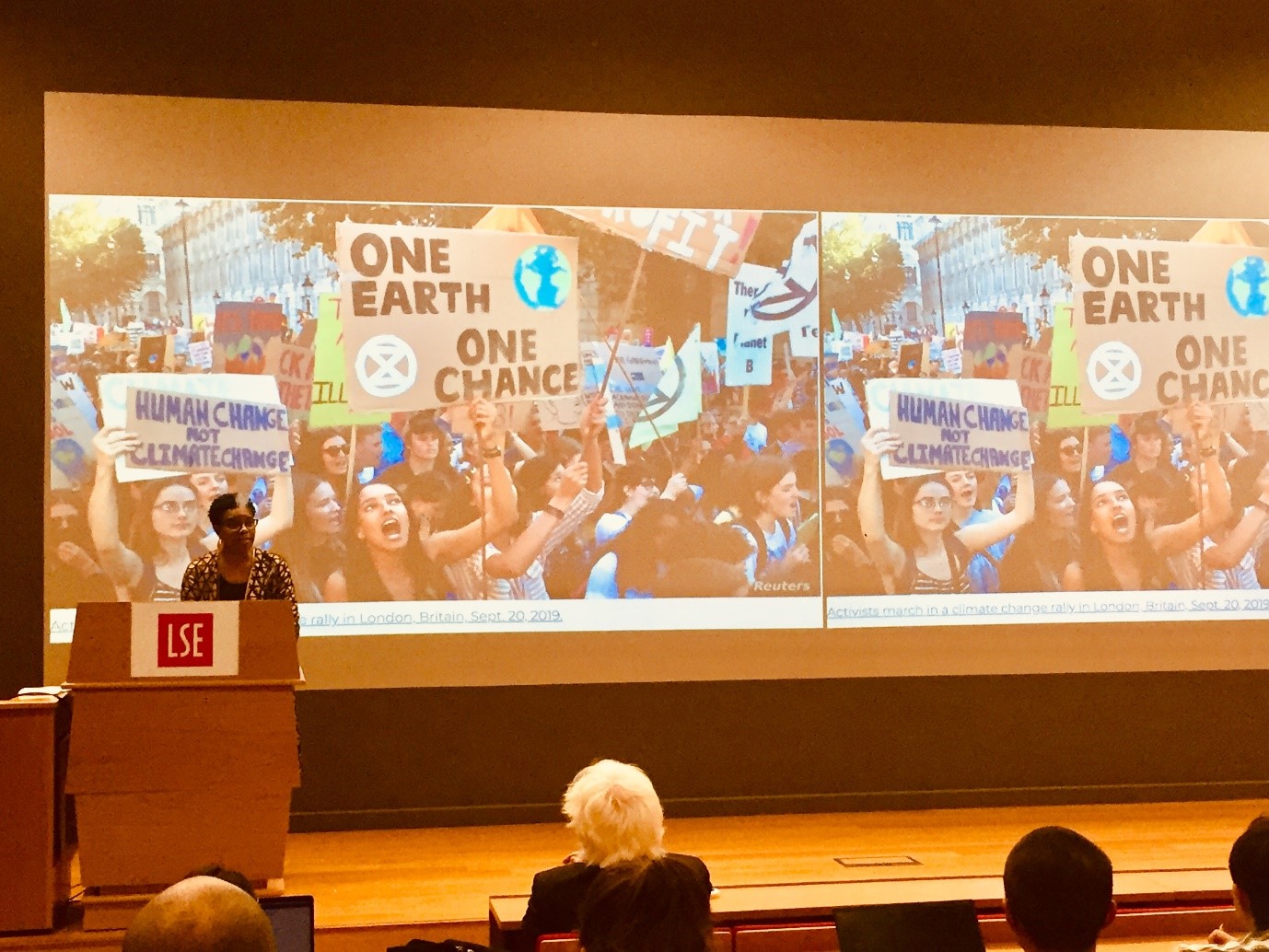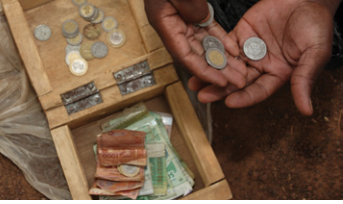In a post originally published on the Africa at LSE blog PfAL scholar Duncan Njue explores how African countries can become bigger players in global trade.
Economists define globalisation as a process that involves the integration of economies – products and services; labour, capital and knowledge markets – across international boundaries. In the western world, more so in Europe, North America and in the Asian powerhouse economies of China, Japan, South Korea, globalisation has entrenched itself and has brought huge economic benefits to its people. However, Africa has not largely benefited and continues to be a small player on the global front. In fact, the continent’s share of global trade – of goods and services – in 2015 stands at only 3% of $18 trillion worth. Yet Africa’s population share is about 16% of the world’s total. With a population of over a billion, the second highest in the world, there is a huge latent demand for its goods and services.
Hoe farming, common in so many African countries, needs to become a thing of the past Credit: International Institute of Tropical Agriculture via Flickr (http://bit.ly/1VqOtoa) CC BY-NC 2.0
The ongoing and established integration of markets must be commended and encouraged. It is certainly a step in the right direction. The continued deepening co-operation between Common Market for East and Southern Africa (COMESA), the East African Community (EAC), and the South African Development Community (SADC) will yield huge opportunities to regional trade. The continued co-operation in infrastructural projects in energy, transport and communication networks such as LAPSSET and Northern Corridor Integration Projects ongoing in East Africa currently will for sure be critical in the economic transformation of these regions. They will foster trade. But Africa’s trade must shift from the traditional importation-and-distribution from the developed economies and focus on value adding the made-in-Africa for export both within the continent and to the rest of the world. This is what will truly lift the people from poverty to dignity. To achieve this each African country must determine what its comparative advantage is and should be and then develop a clear and effective strategy to strengthen that advantage on a global scale. It could be specialised agriculture, manufacturing, tourism, labour market, knowledge economy, service industry. The age of doing a little of everything is long gone and no longer sustainable.
Education needs to be restructured and curricula revised and streamlined in order to churn out human capital relevant to current, projected and planned market requirements. As integration of trade strengthens, there is need to set up joint research institutions to advance studies and innovations that will aid Africa overcome its greatest challenges namely agricultural productivity, health, technological innovation and diffusion.
In the face of the ferocious and unforgiving globalisation, state corporations have been devastated: some because of technological obsoleteness, others because of low efficiency and rigidity in adopting newer production methods. African governments must stop offering blind bail-outs to state agencies. Instead, support must be pegged on performance particularly improved efficiency and quality and sales volumes. Corporations that fail to achieve their deliverables must be disciplined to ensure that genuine growth and improvement in the quality of products and services that can compete beyond local markets.
Agriculture is and continues to be a huge contributor to Africa’s economy. Needless to say it is critical to not only human life sustenance but also to the quality of human capital. But what form of agriculture? The low quality, traditional, subsistence farming will not take the continent far. It holds down a huge proportion of the population with little value addition to the economy. While plough farming was invented over a millennium ago, most African farmers use an even older technology – hoe farming. The continent needs to shift to mechanised, industrialised agriculture and provision of solutions to the sector’s perennial problems. Improving the quality and production of farm inputs; upgrading husbandry methods; streamlining storage and transport infrastructure; ensuring predictable market conditions and availing state support are essential for the sector to grow. Regional governments could extend co-operation and jointly set up production facilities to produce fertilisers and seeds for example.
In conclusion, integration of African markets must be enhanced for the people to benefit from trade and people-to-people interactions. The benefits to the economies are obvious. However, Africa must build a strong capacity and presence in the global trade forums. There must be strong lobbying for favourable trade agreements at the World Trade Organisation, UNCTAD, European Union and ASEAN trade conventions to further open up markets and technological frontiers for African countries.
Duncan Njue is a master’s student and PfAL scholar at LSE.
Find out more about PfAL Scholarships here. Deadline 19 February 2016 for courses starting September.







I disagree with the article on the following points:
– Mechanizing agriculture in Africa has been tried out multiple times with very dismal effects. One only needs to think of the Ground Nut Scheme. Applying technology in African agriculture is more challenging than in the North for reasons ranging from the climate to the soil itself, which is particularly vulnerable. Existing crop varieties in the North are not viable in African climates and have to be specifically modified for the demanding environment. However, mechanizing agriculture is also problematic due to the large number of small-holder farmers in the continent, which renders buying a tractor to cultivate 05-2Ha.
– The next point is very interrelated, which stipulates in an implied way that people have to move out of agriculture and into industries and by way of this logic urbanize Africa. This argument presupposes that industrialization is just around the corner. It presupposes that jobs are available and what is stopping people from moving is their attachment to subsistence farming. The reality of the matter however is a lot more complex and rather bleak. Industrialization is by and large occurring at a rate at which it can absorb labour. People are in fact already moving into the cities in the hope of securing regular jobs, but what they find is that there are no stable jobs and in fact, have to join the informal economy where generally speaking wages, working conditions and social security benefits are considerably lower or non-existent. Rather than prospering in cities, more and more people find themselves living in slums working for below subsistence wages scrambling for survival.
– Finally I disagree with the notion that further global integration is going to benefit Africa and that sticking to its comparative advantage will lead to growth. On the contrary, further integration in global markets and sticking to its comparative advantage (cheap labour, cash crops) will guarantee that Africa will never develop. The solution rather is to promote structural transformation that will allow the continent to move beyond its existing comparative advantage and to make industrialization viable. Relying on cash crops given the inherent unstableness of global markets, will be no guarantee of income and can in fact exacerbate food security and hunger. Allowing foreign investors to bring in capital and exploit cheap labour (a.k.a race to the bottom) will also most definitely not promote growth.
– I do however agree on the point that intra-continental trade has been a success of Africa and should move further forward in a similar way the EU has done. In this respect, it is my belief that African countries have to specialize and develop/exploit their respective comparative advantages vis a vis their fellow neighbors in the continent. In this line of thought, to conclude, while intra-continental free trade should be further pursued, I believe that (selective) protectionism outside of the continent is the only possible way that Africa can catch up with the rest and hopefully develop.
Please accept my apologies for my writing mistakes, I meant to say the following:
– However, mechanizing agriculture is also problematic due to the large number of small-holder farmers in the continent, which renders buying a tractor to cultivate 05-2Ha economically irrational*
– The reality of the matter however is a lot more complex and rather bleak. Industrialization is by and large occurring at a rate at which it cannot* absorb labour.
Thank you for your comment, it’s always very interesting to see how different people interpret a situation. I’ll pass them on to the author.